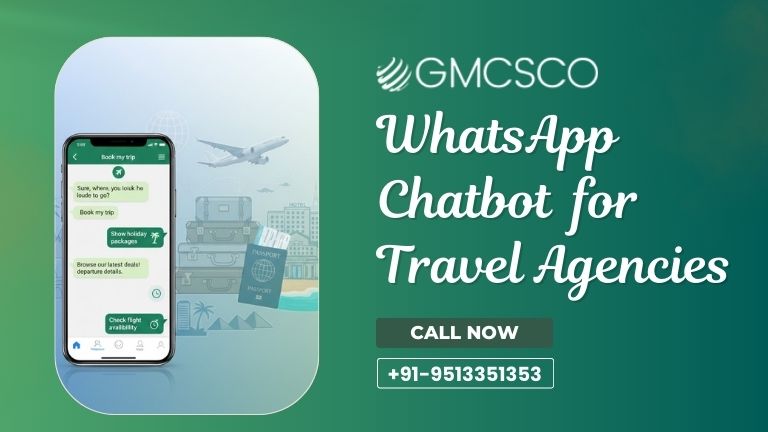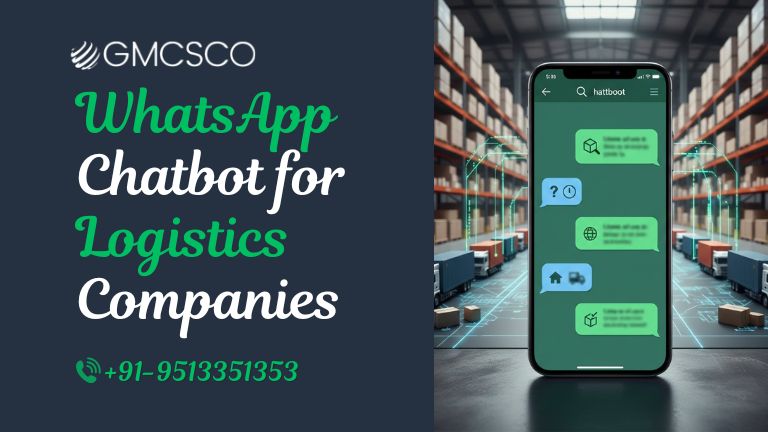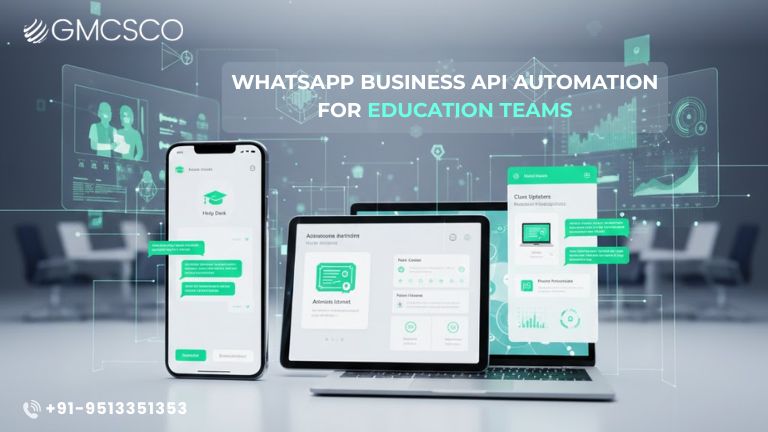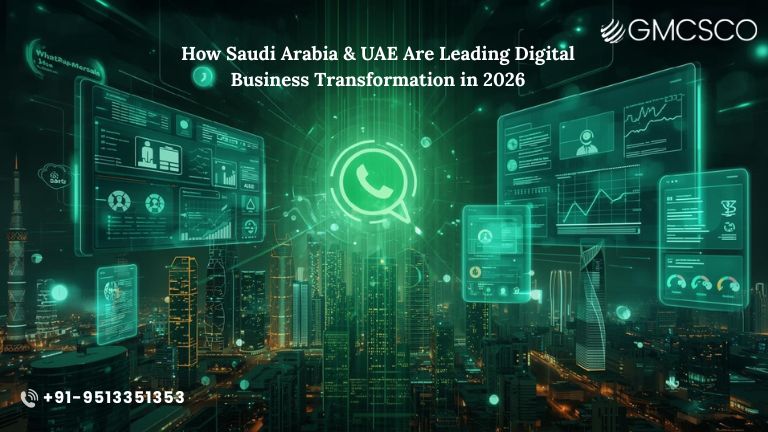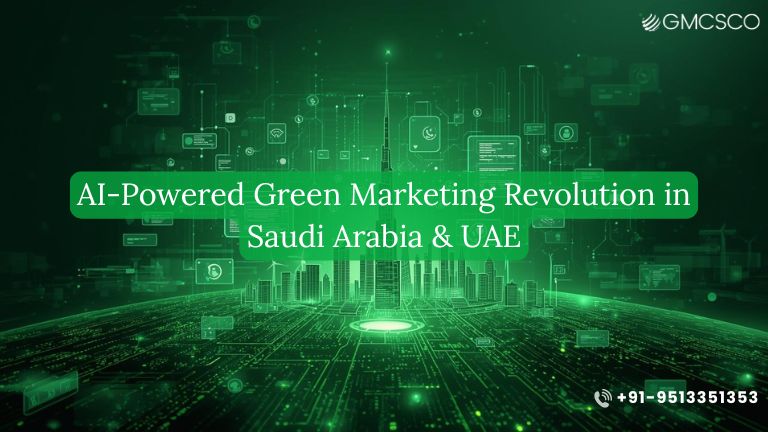WhatsApp Chatbot for Travel Agencies – Automate Bookings & Inquiries
The Smart Way to Boost Bookings and Customer Engagement It’s all about speed, convenience and communication in the travel business. What travelers want in response is prompt answers, clear information and easily bookable options. Email support and even phone calling are outdated forms of contact whenever possible. This is where a WhatsApp Chatbot for Travel Agencies comes into play as the silver bullet. As the most popular messaging app in many countries, including Saudi Arabia, travel businesses now have a direct way to reach those users. A Travel WhatsApp Chatbot gives agencies the ability to automate enquiry processes, booking management and simplify communication efforts between customers service queries and providing immediate support without overwhelming staff. Ranging from flight enquires to hotel booking and even booking for sightseeing, WhatsApp Automation for Travel Agencies is changing the way travel businesses work. What is Travel Agency WhatsApp Chatbot? Travel Agencies WhatsApp Chatbot A travel agency WhatsApp Chatbot is a virtual thing that rally with travelers in an automated manner over the WhatsApp. It responds to questions, shares travel packages, books trips and offers around-the-clock support. Rather than have to wait for office hours, customers can receive immediate answers. A Travel Industry AI Chatbot can figure out what travelers want and serve up personalized details stemming from their profiles. All that makes the whole travel-planning process absolutely more manageable and fun. Leverage AI to scale your travel business Why WhatsApp Automation Is a Must-Have for Travel Agencies? Travelers expect quick answers. And if your agency doesn’t react quickly enough, customers could select a competitor. An AI-Powered WhatsApp Chatbot for Travel Booking never lets a question go unattended. With automation, agencies can Respond instantly Handle multiple customers at once Share itineraries Send booking confirmations Offer support 24/7 A WhatsApp Bot for Tour Operators operates as an always alert digital travel consultant. WhatsApp us for AI Chatbot in Travel Industry WhatsApp Chatbots for Travel Businesses Working The Process Saudi Arabia Travel Agencies WhatsApp Booking System connects your business and WhatsApp Business API. Once configured, the chatbot can walk travelers through a reservation. Customers can Check destinations View packages Ask about prices Book tours Get travel updates Receive reminders This gives you a 100% WhatsApp Chatbot for Tourism Business. Advantages of WhatsApp Chatbot for Travel Agencies Faster Customer Support A WhatsApp Chatbot for Travel provides real-time responses to traveler queries. This minimizes the waiting times and increases satisfaction factors. Customers can ask about Flight schedules Hotel availability Visa requirements Tour packages Travel insurance All through WhatsApp. Easy Travel Booking WhatsApp Chatbot for Travel Booking enables travelers to book travel without ever needing to go to a website. This allows the customer to book with ease and this leads to higher conversions. Reduced Staff Workload WhatsApp Automation For Travel Agencies – All your repetitive work will be automated by WhatsApp. Your team can focus on more complex customer needs. Better Customer Experience Fast responses and tailored content enhance trust and loyalty. Talk to us on WhatsApp now Travel Agencies WhatsApp Chatbot in Saudi Arabia Saudi tourists appreciate efficient and quick service. A WhatsApp Chatbot for Travel Agencies in Saudi Arabia is the answer to these expectations of yours. It facilitates communications between people who speak Arabic with English and allows them to quickly access information. Travel agencies can Share Umrah packages Offer holiday deals Manage local tours Support international travel (Whatsapp Visa Bot Saudi Arabia) Visa Agency: A Travel Chatbot the Main task of a WhatsApp chatbot is to Simplify Travelling. AI Travel Chatbot Saudi Arabia Saudi Arabia AI Travel Chatbot Reasons for Choosing It calculates that if the app is able to understand what every traveler wants to decide, it would provide travel ideas. It can Recommend destinations Suggest hotels Share itineraries Answer FAQs Handle multiple users AI makes for a personalized travel experience. Message us on WhatsApp today WhatsApp Chatbot for Travel Agencies Saudi Arabia Saudi travel agencies able to serve large volumes of customers efficiently with automation. Certainly, with WhatsApp Automation for Travel Agencies KSA, enterprises will be able to Send booking confirmations Share travel documents Provide reminders Handle cancellations Offer customer support This has the benefit of raising quality and reducing mistakes. WhatsApp Business API for Travel in KSA For business automation, companies required WhatsApp Business API in Travel sector in Saudi Arabia. It allows Multiple agents to respond Secure messaging High message volume CRM integration Verified business accounts This ensures reliability and trust. Own official WhatsApp API for your Agency WhatsApp Bot for Tour Operators Tour operators also handle group tours, sightseeing trips and special packages. A WhatsApp Bot for Tour Operators keeps all communication organized in one place. It can Share tour details Confirm bookings Send schedules Handle group inquiries Provide updates This enhances coordination and customer delight. WhatsApp Chatbot for Tourism Business For travel businesses, engagement with the customer is paramount. A WhatsApp Chatbot for Tourism Business can help in drawing and converting touristers. It can Promote destinations Show travel deals Collect customer data Send offers Build loyalty WhatsApp’s marketing potential is unlocked. Use WhatsApp Automation today Real World Applications of Travel WhatsApp Chatbots Travel Inquiry Handling Passengers inquire about destinations, prices and availability. Package Recommendations (Chatbots recommend packages according to taste. Booking Assistance Travelers complete bookings through WhatsApp. Payment Guidance Shoppers receive help with payment plans. Post-Booking Support Chatbots distribute tickets, hotel information and reminders. WhatsApp Booking System for Travel Agencies Saudi Arabia Book Airline and Hotel rooms from your travel service colleague with the use of this WhatsApp Booking System for Travel Agencies Saudi Arabia. It allows travelers to Choose packages Confirm dates Receive invoices Get confirmations This decreases resistance and increases conversion rates. Get a WhatsApp Booking System Trust and Security in Travel Communication Travel info may contain personal information and payment card numbers. WhatsApp provides end-to-end encryption for secure messaging. Using a WhatsApp Chatbot Service in Saudi Arabia for Travel ensures Safe communication Verified business identity Data protection Customer trust Safety gives confidence to your brand. Now Get WhatsApp Travel Marketing Automation For Travel Agents WhatsApp automation brings marketing to a whole new level. Travel agencies can send Seasonal offers Holiday packages Discount deals Travel updates New destination alerts This means customers remain interested and book again. Use WhatsApp Marketing Automation Common Mistakes to Avoid Not using official WhatsApp API
WhatsApp Chatbot for Travel Agencies – Automate Bookings & Inquiries Read More »

